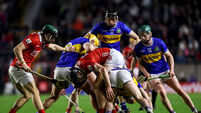The inside story of Ireland's political and economic meltdown

2010 BAILOUT
AS THE 2010 European crisis worsened and engulfed the continent, a committee was established by the European Commission with the ECB and the IMF to organise loans to embattled countries. It became known as the Troika — the Russian word for a sled pulled by three horses.













